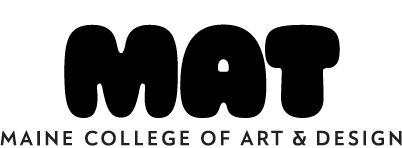Responsibilities of the Mentor Teacher
Your mentor teacher is a fully certified PK-12 Art Teacher and has taught at the same grade level(s) for a minimum of three years. The mentor teacher’s primary role is to help you become an effective teacher. Although you are responsible for your own learning, to a great extent the mentor teacher determines how successful your student teaching experience will be. Mentor teachers are also responsible for establishing a relationship of mutual respect and trust with the candidate. Through role modeling, formal observation and feedback, and informal conversation, your mentor teacher will help you acquire the practical knowledge, skills, and abilities it takes to become a professional educator.
The opportunity to guide the development of teacher candidates is both challenging and rewarding. Mentor teachers engaged in mentoring gain satisfaction by contributing to the development of excellence in the teaching profession, are inspired through the sharing of ideas and teaching strategies, and increase student achievement in their classroom by providing new and exciting opportunities for learning. Some of the responsibilities assigned to the mentor teacher:
- Meet with the teacher candidate and the Director of Art Education Outreach to discuss mutual expectations for the student teaching experience.
- Assist the candidate in developing teaching and learning goals and objectives.
- After a short period of observation and assistance, agree to have the candidate take full responsibility for all classes.
- Prepare your students for the arrival of a student teacher.
- If permission to photograph and digitally record the classroom activities of the student teacher has not already been collected, confer with your principal as to procedures for acquiring parental permission.
- Act as a guide and serve as a role model for the candidate.
- Develop and maintain a professional relationship with the candidate.
- Serve as mentor and introduce the candidate to other faculty, administrators, and staff.
- Inform the candidate about school and district policies – in particular, policies related to issues that may arise in the art classroom. These issues include, but are not limited to, procedures for managing disruptive
- Student behaviors and procedures for accommodating diverse student needs
- Demonstrate effective teaching strategies and methods in an atmosphere conducive to the learning process, including avenues for experimentation, risk-taking, and reflection.
- Clearly explain how the art classroom is organized and managed for effective instruction.
- Provide essential teaching materials and curriculum guides as needed.
- Review and evaluate the candidate’s lesson plans and presentations on a weekly basis.
- Advise the candidate how to develop and maintain positive student-teacher-parent communications.
- Meet regularly with the candidate to discuss performance and provide specific and constructive feedback.
- Communicate regularly with the faculty supervisor and inform the faculty supervisor of problems as they arise.
- Help the candidate bring closure to the student teaching experience.
- Complete two written evaluation reports of the candidate’s performance, one at midterm and one during the last week of student teaching. Share and discuss evaluations with your mentee following the observation.
- Email evaluations to the Director of Art Education Outreach.
